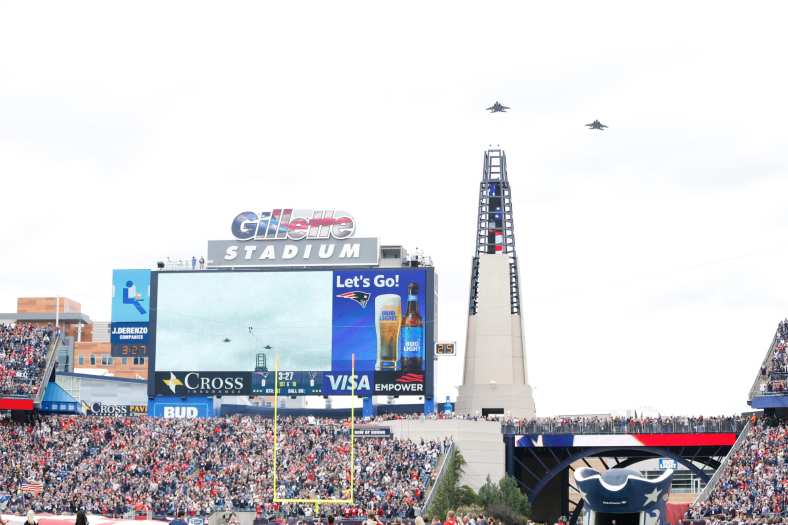
Those in the Foxborough area who want to get an early look at former NFL MVP Cam Newton replacing Tom Brady under center will have to wait some time.
NFL teams are starting to make announcements as it relates to whether fans will be allowed to attend games this coming season amid the COVID-19 pandemic. The New England Patriots are the latest team to make said announcement.
Patriots will not have fans in attendance for first two home games this season
This means that New England’s Sept. 13 opener against the division-rival Miami Dolphins will be played in front of an empty Gillette Stadium, as will its Sept. 27 outing against the Las Vegas Raiders.
After that, it’s pretty much anyone’s best guess what will happen. The Patriots are set to host the Denver Broncos on Oct. 11 in their third home game of the season before taking on the San Francisco 49ers Oct. 25.
NFL teams announcing attendance for 2020 season
The defending champion Kansas City Chiefs announced on Monday that they’ll allow 22% of capacity for their opener against the Houston Texans on Sept. 10.
Meanwhile, other teams have already indicated that they will not have fans in attendance throughout the 2020 season. Most notably, that includes the above-mentioned Raiders in their first season representing Las Vegas.
From a competitive standpoint, individual teams and local leaders making the decision regarding fans attending games could potentially have an impact on the 2020 NFL season.
But at this point, relying on local leaders and health experts makes the most sense. Certain regions in the United States continue to be battered by the pandemic. Others have pretty much flattened the curve.
It’s impossible to have a league-wide policy on attendance when taking that into account. Such is the nature of the beast in a landscape that has seen the United States government rely more on the states than those in D.C. when responding to the pandemic.